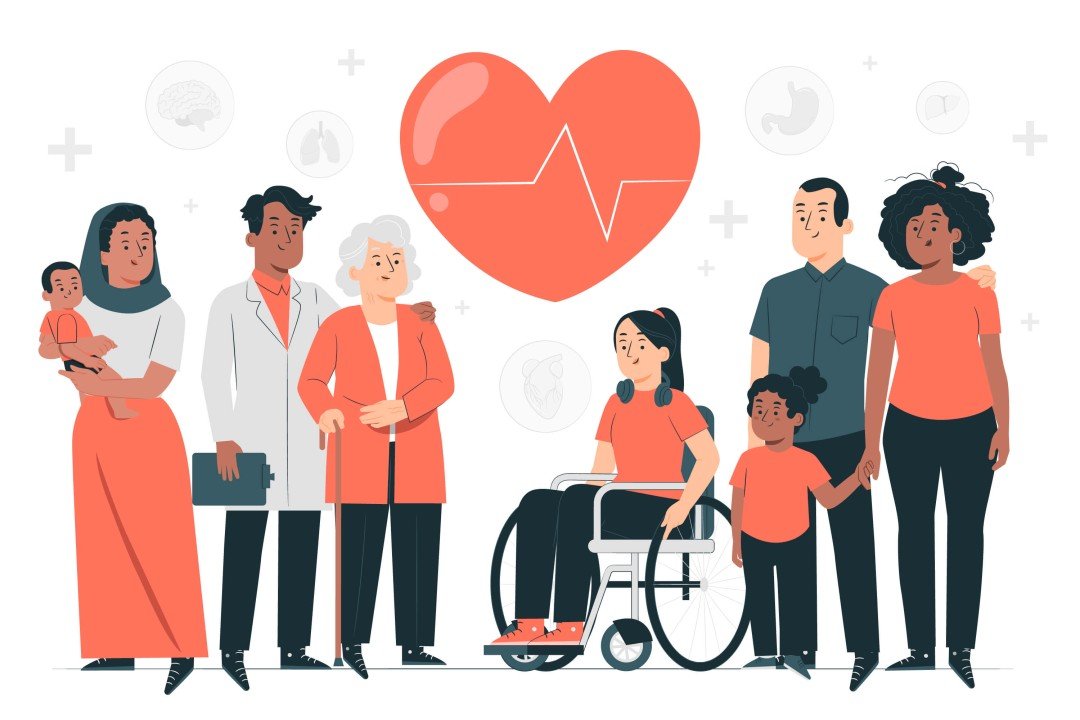Mental health means being balanced on social, emotional, and psychological levels. It influences thoughts, emotions, and behavior. Knowledge about different mental health conditions — and the best treatment — is key in aiding wellness, and providing humanizing treatment. This article discusses four of the most common mental health disorders and how they are treated.

1. Mood Disorders
Mood disorder, also known as affective disorder, is a psychological condition that causes mild to severe disturbances in an individual’s mood. Most of these disorders involve difficulties with emotional experiencing and regulation Depression and bipolar disorder are both examples of mood disorders but these two conditions can often be confused with one another.
- Depression: It is the condition in which sadness/hopelessness/all the things we once enjoyed feel like shit. Symptoms may be changes in appetite or sleep, difficulty concentrating, and the like. Depression can be debilitating and severely hinder normal daily functioning /quality of life.
- Bipolar Disorder: In contrast to some other mood disorders (such as Major Depression), Bipolar Disorder is characterized by episodes of dramatic, intense moods – both good and bad. The mood swings can be very severe, disrupting relationships and affecting the ability to perform routine daily tasks.
Treatment Approaches
Most often, the treatment of a mood disorder is both medication (if needed) and psychotherapy along with lifestyle changes.
- Medication: Neurotransmitters in the brain can be regulated with antidepressants used to treat depression. Mood stabilizers, antipsychotic drugs, and antidepressants may be used to manage symptoms of bipolar disorder and prevent episodes.
- Psychotherapy: Cognitive Behavioral Therapy (CBT) is a highly effective treatment for mood disorders. CBT can help people learn to recognize and change negative thought patterns and images of also by encouraging people to identify unhealthy behaviors. Also, different forms of therapy like Interpersonal Therapy (IPT) and Dialectical Behavior Therapy (DBT), could prove to be beneficial.
- Life style: A balanced diet, proper sleep hygiene, and regular exercise can greatly affect mood and are all beneficial for daily self-care. Stress management methods and a strong social network are also essential.
2. Anxiety Disorders

Think of anxiety disorders as simply chronic abnormally high levels of fear and worry, getting in the way of your life every day. These are all mental health disorders where feelings of anxiety last a long time and can be severe enough to interfere with daily life. Generalized Anxiety Disorder (GAD), Panic Disorder, and Social Anxiety Disorders are three common types.
- Generalized Anxiety Disorder: (GAD) happens when you experience chronic, persistent worry about a variety of things such as work or health concerns and other social interactions. People with GAD may also feel hot, and irritable and struggle with muscle tension.
- Panic Disorder: Panic attacks are sudden periods of intense fear or discomfort. Withdrawal symptoms that may signal a panic attack include rapid heartbeat, sweating trembling or shaking, and fear of dying.
- Social Anxiety Disorder: It is defined as an excessive fear of social or performance situations where the person believes they may be evaluated by others and judged. Hiding, Clicking, Withdrawing, Spending more time alone. Avoidance of social interactions. Impaired personal & professional relationships
Treatment Approaches

Common treatment for anxiety disorders: Medication, cognitive-behavior therapy, etc.
- Drugs: Antianxiety drugs, including benzodiazepines and choices in the form of selective serotonin reuptake inhibitors (SSRIs), are usually prescribed to treat these symptoms. It is these meds that help to balance out chemicals in the brain and make anxiety levels more manageable.
- Treatment: Cognitive Behavioral Therapy (CBT) is very successful in treating anxiety disorders. CBT is designed to help people recognize these automatic negative thoughts and challenge them with a more rational response as well as come up with positive coping strategies. Exposure therapy, or gradually exposing people to feared situations can be useful as well.
- Lifestyle Changes: Very simple exercises, and mindfulness methods to help manage anxiety. Creating a routine and decreasing caffeine/alcohol consumption will also aid in reducing anxiety overall.
3. Personality Disorders
Personality disorders are defined by groups of mental health conditions that make up our outlook behavior, and interpersonal relations. These patterns are associated with significant distress or disability. These include Borderline Personality Disorder (BPD) and Narcissistic PD.
- Borderline Personality Disorder: Borderline personality disorder (BPD) refers to a condition in which the patient shows impulsive behaviors, unstable emotions, and turbulent relationships. People with BPD often feel empty, fear being abandoned and engage in self-destructive behaviors.
- Narcissistic Personality Disorder: (NPD) is a persistent pattern of grandiosity, need for admiration, and lack of empathy. Compulsive reminder: Sign is ubiquitous, egos are now exploited as trophies and you can rest on laurels ⚠ NPD Narcissists demand attention indefinitely
Treatment Approaches
Although the treatment of personality disorders is often more complex, it also requires a multi-faceted approach.
- Medications: No medications are specifically approved by the U.S. Food and Drug Administration to treat personality disorders, but certain types of drugs can help with symptoms such as difficulty managing moods or anxiety
- Containment: The behavioral therapy type of treatment is through psychotherapy that provides containment. DBT (Dialectical Behavior Therapy) is the most known and well-accepted method when it comes to BPD with a focus on emotional regulation, interpersonal effectiveness, and distress tolerance. Treatment for Narcissistic Personality Disorder seeks to increase the person’s self-insight and develop their interpersonal style.
- Suggestions for treatment: You may also recommend support groups, and other reinforcing interventions such as soothing activities to boost self-esteem and individual growth.
4. Psychotic Disorders

Psychotic disorders involve a loss of touch with reality and can show up as hallucinations, delusions, or disorganized thinking. The best-known psychotic disorder is Schizophrenia.
- Schizophrenia: It symptoms can include hallucinations (hearing or seeing things that are not there), delusions, and disorganized thoughts. These signs and symptoms can seriously damage a specific daily routine.
Treatment Approaches
Psychotic disorders are normally managed with a combination of medications, therapy, and other supports.
- Psychotherapy and Medications: The main treatments for psychiatric problems are antipsychotic drugs. They help to control the symptoms like hallucinations and delusions by influencing neurotransmitter levels in your brain.
- Treatment: Psychotherapy such as CBT (Cognitive Behavioral Therapy) can be helpful in symptom management and functioning. Cognitive Remediation Therapy (CRT) is another option for cognitive deficits in psychotic disorder.
- Integration in the Society: Social support, vocational training, and. rehabilitation services have an important role in giving those with psychosis that chance for a good quality of life.
Conclusion
An individual must know the types of conditions they face along with the treatments available to experience feelings of euphoria and enjoy true mental wellness. The specific approach for dealing with mood disorders, anxiety disorders, personality disorders are psychotic disorders will be different based on the details of the condition and may involve medication therapy and lifestyle changes.
Minimizing those signs and symptoms, and knowing what to look for mental health issues in themselves or others who need treatment can help individuals live with these disorders more effectively and achieve better satisfaction from life. We must keep trying to get mental health awareness and support available so all who need it can receive the care justly.

























